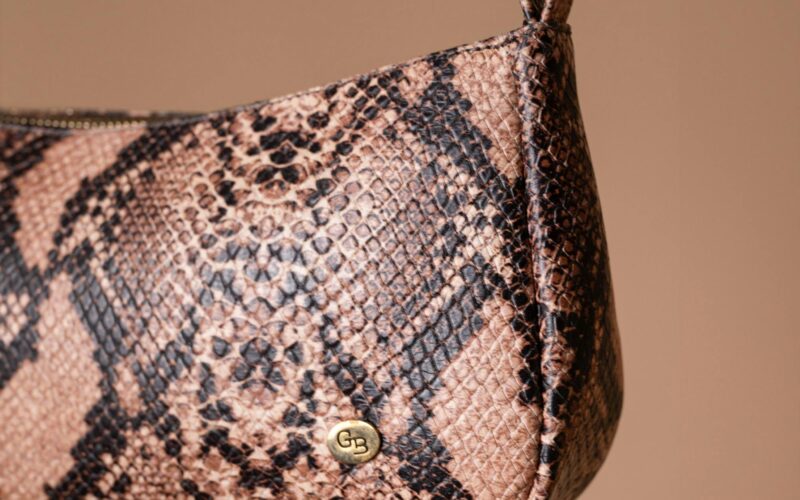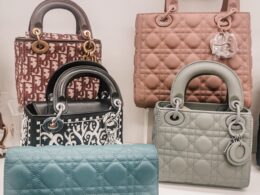An investigation by the People for the Ethical Treatment of Animals (PETA) and a resulting lawsuit against Gucci has shed light on the issue of the treatment of animals in the fashion industry.1[1]Pamela N. Danziger, Gucci Troubles Mount As Lawsuit Claims Unethical Animal Treatment In Supply Chain, FORBES (Oct. 28, 2024), https://www.forbes.com/sites/pamdanziger/2024/10/28/gucci-troubles-mount-as-lawsuit
-claims-unethical-animal-treatment-in-supply-chain/.
A recent lawsuit concerning alleged misrepresentations about sourcing python and crocodile skin products implicated Gucci, a luxury fashion brand, and its parent company, Kering Americas, Inc. (“Kering”).2[2]Id. Kering is a global fashion house that owns many prominent brands in the industry, such as Gucci, Balenciaga, Alexander McQueen, and Saint Laurent.3[3]Kering Goes Entirely Fur Free, KERING (Sept. 24, 2021), https://www.kering.com/en/news/kering-goes-entirely-
fur-free/.
The findings from the PETA investigation directly conflict with Kering’s Code of Ethics, which maintain that Kering respects animal welfare and has high standards for the treatment of animals.4[4]Kering Animal Welfare Standards, KERING (Feb. 9, 2025), https://www.kering.com/en/sustainability/safeguarding-
the-planet/animal-welfare/.
The pending Gucci litigation presents an interesting lens to explore the broader legal and policy implications of using animal products in the fashion industry.
The Lawsuit and Investigation
Tracy Cohen (“Cohen”), a former top-selling Gucci sales associate, filed the lawsuit.5[5]Cohen v. Kering Americas, Inc., No. 24 CV 7046, 2024 WL 4534988 (N.D. Ill. Oct. 21, 2024 Gucci trained Cohen to perform a “selling ceremony” to present exotic skinned bags, meaning she was required to tell customers the skins were ethically sourced, the animals were not tortured, and the skins were obtained through a natural shedding process.6[6]Id. In her lawsuit, Cohen alleged that she eventually learned of PETA’s investigation—which claimed that Gucci was sourcing exotic skins from facilities where pythons were crudely killed, sometimes with blunt-force trauma or while still conscious—and filed suit against Gucci and Kering for violating the Illinois Consumer Fraud and Deceptive Business Practices Act (“ICFA”).7[7]Id. The ICFA prohibits the false advertising of products to protect consumers from deceptive representations, statements, and concealments regarding products.8[8]815 ILCS 505. To bring a claim under the ICFA, a plaintiff must show that “a defendant’s actions were deceptive, that defendant intended plaintiff to rely on the deception, and that the deceptive practice occurred in the course of the conduct of defendants’ trade or commerce.”9[9]Id. Cohen claimed that Gucci and Kering misrepresented the nature of their products and “deceived her into buying, and selling, crocodile/alligator and python products by falsely claiming it engaged in humane and ethical practices during the production of the exotic skin products.”10[10]Supra, note 5. She claims to be “traumatized” knowing that she was “duped” into selling the exotic skin products.11[11]Id.
The PETA investigation details the treatment of pythons at Kering’s farm. PETA investigators infiltrated two Kering python farms in Thailand from February through November 2023.12[12]PETA Asia Investigation Reveals Egregious Cruelty in Gucci Parent’s Supply Chain, PEOPLE FOR THE ETHICAL TREATMENT OF ANIMALS (Dec. 5, 2023), https://investigations.peta.org/thailand-pythons-crocodiles/ The investigation claims that workers in the facilities “pinned struggling pythons down by the neck and smashed them over the head with a hammer before driving metal hooks through their heads; inflating their bodies with water, even as the animals continued to move about; and skinning them.”13[13]Id. Cohen alleged that this treatment is a stark departure from the ethical sourcing practices she was required to detail to customers during selling ceremonies and that she would not have performed the ceremonies if not for Gucci and Kering’s “deception.”14[14]Supra, note 5. Gucci and Kering have declined to officially comment on the investigation in light of the pending litigation.15[15]Supra, note 1.
Legal Implications for the Fashion Industry
There are important legal implications to consider regarding this suit. Cohen brought the suit as a class action, inviting anyone who purchased exotic skin products in Illinois over the past 14 years to join in the suit.16[16]Supra, note 5. Discovery, which is currently taking place, will determine the exact number of plaintiffs.17[17]Id. One issue that often arises with class action lawsuits is whether the court will grant class certification. Class certification refers to the process by which the court determines whether the case can continue as a class action lawsuit.18[18]Fed. R. Civ. P. 23(a) To determine whether to grant certification, the court considers the size of the class, whether there are similar questions of law or fact, the similarity of claims and defenses of the representative parties versus that of the class, and whether the representative parties will fairly and adequately protect the interests of the class.19[19]Id. If the court denies certification, the lawsuit may proceed as an individual action with Cohen as the sole plaintiff.20[20]Id. If the court grants class certification and the class prevails, it may be easier for future litigants to bring claims regarding misrepresentations regarding the ethical sourcing of animal products. This could force companies in the fashion industry to be more transparent regarding their animal welfare practices to avoid litigation in the future.
Policy Implications
Furthermore, if Cohen prevails in the lawsuit, it may impact animal welfare policy in the fashion industry. Trends in the fashion industry have indicated a shift towards ethical practices surrounding animals.21[21]Colleen Kratofil, Luxury Fashion Brands That Are Anti-Fur, PEOPLE (June 30, 2021), https://people.com/style
/fur-free-luxury-fashion-brands/.
Concerns about the treatment of animals have spearheaded reform regarding animal products.22[22]Jonah Engel Bromwich, Los Angeles Will Ban the Sale of Fur, THE NEW YORK TIMES (Sept. 18, 2018), https://www.nytimes.com/2018/09/18/style/fur-ban-los-angeles.html. A prominent example of this is Los Angeles and San Francisco’s ban on the sale and manufacture of fur products.23[23]Id. The ban emerged out of concerns regarding animal welfare and the “unsustainability of raising and killing animals strictly for their fur.”24[24]Max Berlinger, Fur Sales Are Illegal in California. Does Anyone Care?, THE NEW YORK TIMES (Feb. 23, 2023), https://www.nytimes.com/2023/02/23/style/fur-sales-california.html In International Fur Trade Federation v. City and County of San Francisco, a fur industry trade group challenged the constitutionality of the fur ban.25[25]International Fur Trade Federation v. City and County of San Francisco, 472 F.Supp.3d 696 (N.D. Cal. 2020) The court dismissed the challenge, further reflecting ongoing legal and societal debates about animal welfare and the ethicality of animal products.26[26]Id. Many luxury brands, including Gucci, followed suit in the anti-fur movement and completely stopped using fur in their products.27[27]Supra, note 21. With the condemnation of fur, it is conceivable that exotic skins could be next. The high fashion brand Chanel has already ceased using exotic skins in their products, explaining that they have become increasingly difficult to ethically source.28[28]Kolirin, Lianne, Chanel Bans Fur and Exotic Animal Skins, CNN (Dec. 4, 2018), https://www.cnn.com/style/article/chanel-fur-ban-scli-intl/index.html. If Cohen prevails on her misrepresentation claim, Gucci’s reputation may be injured as they have claimed to “take the lead in sustainability” and have “the very highest environmental and social values and standards.”29[29]Supra, note 3. Consumers may hold other fashion brands that tout ethical practices to a higher standard, especially when there is a perceived lack of transparency. Similar to the case of the fur ban in Los Angeles and San Francisco, this shift in attitude may lead to stricter regulations regarding animal welfare in the industry.
Looking Forward
Gucci and Kering filed a motion to dismiss the case for lack of personal jurisdiction and failure to state a claim. The Court granted the motion to dismiss Kering for lack of personal jurisdiction, reasoning that “a general statement that Kering manufactured some unspecified products sold by Gucci is insufficient to tie Kering’s contacts with Illinois to the alleged injury in this case.” Hence, Kering is no longer a defendant in the lawsuit.30[30]Cohen v. Kering Ams., Inc., No. 24 CV 7046, 2024 U.S. Dist. LEXIS 190741, at 6 (N.D. Ill. Oct. 21, 2024). The Court denied the motion to dismiss Gucci for failure to state a claim, reasoning that Cohen provided sufficiently detailed allegations regarding the alleged deception and therefore, has not failed to state a claim under the IFCA.31[31]Id. at 8. The case is still pending while the parties conduct discovery.32[32]Id. During discovery, the parties will exchange information and evidence in preparation for trial. It will be interesting to see how the case unfolds and furthers the discussion of the ethical treatment of animals in the fashion industry, as the outcome of the case may signal a push towards transparent, cruelty-free practices for companies that profess sustainable practices. If Cohen prevails in her lawsuit, Gucci and other brands may need to revise their transparency policies regarding product sourcing. This may, in turn, lead to profound changes in the high fashion industry’s practices and for consumers who once coveted exotic animal handbags and luxury items.
Written by: Jordan Baal
Jordan is a 2027 J.D. Candidate at Brooklyn Law School.
[1] Pamela N. Danziger, Gucci Troubles Mount As Lawsuit Claims Unethical Animal Treatment In Supply Chain, FORBES (Oct. 28, 2024), https://www.forbes.com/sites/pamdanziger/2024/10/28/gucci-troubles-mount-as-lawsuit-claims-unethical-animal-treatment-in-supply-chain/.
[2] Id.
[3] Kering Goes Entirely Fur Free, KERING (Sept. 24, 2021), https://www.kering.com/en/news/kering-goes-entirely-fur-free/.
[4] Kering Animal Welfare Standards, KERING (Feb. 9, 2025), https://www.kering.com/en/sustainability/safeguarding-
the-planet/animal-welfare/.
[5] Cohen v. Kering Americas, Inc., No. 24 CV 7046, 2024 WL 4534988 (N.D. Ill. Oct. 21, 2024)
[6] Id.
[7] Id.
[8] 815 ILCS 505.
[9] Id.
[10] Supra, note 5.
[11] Id.
[12] PETA Asia Investigation Reveals Egregious Cruelty in Gucci Parent’s Supply Chain, PEOPLE FOR THE ETHICAL TREATMENT OF ANIMALS(Dec. 5, 2023), https://investigations.peta.org/thailand-pythons-crocodiles/.
[13] Id.
[14] Supra, note 5.
[15] Supra, note 1.
[16] Supra, note 5.
[17] Id.
[18] Fed. R. Civ. P. 23(a)
[19] Id.
[20] Id.
[21] Colleen Kratofil, Luxury Fashion Brands That Are Anti-Fur, PEOPLE (June 30, 2021), https://people.com/style/fur-free-luxury-fashion-brands/.
[22] Jonah Engel Bromwich, Los Angeles Will Ban the Sale of Fur, THE NEW YORK TIMES (Sept. 18, 2018), https://www.nytimes.com/2018/09/18/style/fur-ban-los-angeles.html.
[23] Id.
[24] [1] Max Berlinger, Fur Sales Are Illegal in California. Does Anyone Care?, THE NEW YORK TIMES (Feb. 23, 2023), https://www.nytimes.com/2023/02/23/style/fur-sales-california.html
[25] International Fur Trade Federation v. City and County of San Francisco, 472 F.Supp.3d 696 (N.D. Cal. 2020)
[26] Id.
[27] Supra, note 21.
[28] Kolirin, Lianne, Chanel Bans Fur and Exotic Animal Skins, CNN (Dec. 4, 2018), https://www.cnn.com/style/article/chanel-fur-ban-scli-intl/index.html.
[29] Supra, note 3.
[30] Cohen v. Kering Ams., Inc., No. 24 CV 7046, 2024 U.S. Dist. LEXIS 190741, at 6 (N.D. Ill. Oct. 21, 2024).
[31] Id. at 8.
[32] Id.




